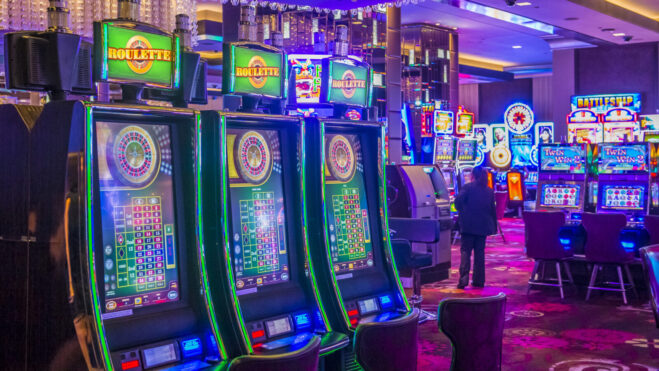Why New Hampshire’s Online Casino Hopes Just Went Ice Cold
One notably anti-iCasino entity has gained a significant foothold in The Granite State
3 min

If you were banking on New Hampshire becoming the next state to legalize online casinos, it may be time to reconsider.
That’s because one of the most powerful iGaming opponents — Cordish Companies — has received approval to plant its flag in New Hampshire and build a $200 million casino, Live! Casino Salem.
Slated to open in 2025, the casino will include 900 historical horse racing machines and more than 40 table games. It’s projected to inject $128 million annually into the region’s economy.
That gives Cordish Companies a significant amount of sway in New Hampshire, a market that had been seen as a candidate to become the next to legalize online casinos.
New Hampshire has come so close …
In 2023, the New Hampshire Senate passed an online casino bill. But it stalled out in the House. The bill, filed by Sen. Timothy Lang, would have sent iGaming revenue to the state’s community college fund and set the minimum age at 18.
Lang has been vocal about wanting to resurface another iGaming bill during the 2025 legislative session, which begins Jan. 8.
With all the factors combined — an iGaming bill passed the House in the last legislative session, other New England states (Connecticut and Rhode Island) have already legalized online casinos, and Lang seemed intent on trying again in 2025 — New Hampshire had seemed like a strong contender for iGaming.
However, this was before Cordish Companies became a player in the state.
This isn’t to say chances for New Hampshire online casinos are nonexistent. But the state’s iGaming advocates just gained a powerful opponent in Cordish Companies.
Just ask Maryland.
Cordish helped doom Maryland iGaming bill
Cordish Companies operates Live! brand casinos and a pair of Hard Rock casinos in Florida, among a variety of other mixed-use entertainment districts across the U.S. One of those Live! casinos is Live! Casino Maryland.
When Maryland lawmakers tried to pass an iGaming bill in the spring, Cordish Companies stood in the way — helping to kill that bill. House Bill 1319 passed the House but stalled out in the Senate.
Four of Maryland’s six brick-and-mortar casinos actually supported the bill, which speaks even more to how much weight Cordish’s opposition carried.
Mark Stewart, executive vice president and general counsel for Cordish Companies, testified against the bill in front of the House Ways and Means Committee in March.
“We genuinely believe iGaming is a bad deal for Maryland, our employees, and our communities,” Stewart said. “There’s little dispute that iGaming will cause substantial job loss.
“If iGaming passes, we’re a gaming company — we’ll do well financially. But despite our potential financial gain, we are asking you not to do iGaming, and that should speak volumes.”
According to written testimony it also filed to the Ways and Means Committee, Cordish Companies worried less about its overall bottom line and more about cannibalization affecting jobs at its casino, as well as “reduced economic investment” in Maryland businesses.
“We urge you to oppose HB1319,” the end of the seven-page written testimony read. “At the very least, before any further expansion of online gambling occurs, the State should conduct a comprehensive study of mobile sports betting and its various impacts, as well as the societal impacts of iGaming in the very few states that have authorized it, to obtain a clearer data-based picture of the issues related to iGaming and inform any future legislative policy accordingly.”
The charitable gaming opposition
In New Hampshire, Cordish Companies won’t be alone in its opposition to iGaming.
Despite iGaming gaining momentum on certain levels, many of the state’s 14 casinos — which are technically charitable gaming facilities — didn’t support the 2023 bill. And neither did a strong contingent of the charitable organizations that benefit from the casinos’ donations.
State law allows facilities to offer card games and other casino games as long as 35% of their revenue is donated to charity.
So, in New Hampshire, the arguments about iGaming hurting retail casino revenue don’t just apply to casinos. They apply to charities, too.
The New Hampshire Bulletin spoke with representatives of some of those charities for a story in April 2023.
“We have to raise about [$1.2 million] every year, and so [casino revenue] contributes to that,” said Jon Eriquezzo, the president of Meals on Wheels of Hillsborough County, which receives charitable gaming funds. “And what’s the impact [of losing it]? I can say a number of meals won’t be served, but the reality is I have to cut a position.”
Bill Dunlap, a representative of the New Hampshire Historical Society, said the organization gets about 25% of its funding each year from charitable gaming.
“So we rely on it,” he said.
Now, these casinos and charities have added a powerful ally in Cordish Companies ahead of another potential legislative effort in 2025.




